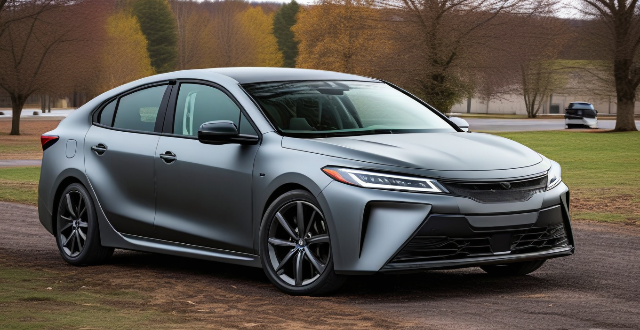Gasoline hybrid cars' performance in cold weather can be affected by reduced battery capacity, thicker engine oil, and decreased tire traction. Proper maintenance and adjustments to driving habits are crucial for safe and efficient operation during the colder months.

Performance of Gasoline Hybrid Cars in Cold Weather
Gasoline hybrid cars, which combine a gasoline engine with an electric motor, are designed to offer fuel efficiency and reduced emissions. However, their performance in cold weather can be affected by several factors. Here's a detailed analysis:
Starting the Engine
Battery Performance
- Reduced Capacity: In cold weather, the battery's capacity may decrease, leading to reduced power for starting the engine.
- Slower Charge Rate: The rate at which the battery charges may also be slower, affecting the overall performance of the vehicle.
Engine Oil Viscosity
- Thicker Oil: Cold temperatures can make the engine oil thicker, requiring more energy to circulate it throughout the engine. This can result in increased wear and tear on the engine components.
Driving Performance
Tire Traction
- Reduced Grip: Cold weather can reduce the grip of the tires on the road surface, potentially affecting acceleration and braking performance.
- Ice and Snow: The presence of ice and snow can further compromise tire traction, making it more challenging to drive smoothly.
Heating Systems
- Increased Energy Demand: The demand for heating systems (both for cabin heating and engine warm-up) can drain the battery faster, reducing the availability of power for driving.
- Reduced Efficiency: The need to maintain cabin comfort can lead to reduced overall efficiency as more energy is diverted to heating systems.
Fuel Economy
Increased Fuel Consumption
- Warm-Up Periods: Cold weather requires longer warm-up periods for both the engine and the battery, resulting in increased fuel consumption during startup.
- Reduced Efficiency: The reduced efficiency of the battery and the increased load on the engine can lead to higher fuel consumption during cold weather driving.
Maintenance Considerations
Battery Health
- Regular Check-ups: It's essential to have the battery checked regularly, especially after prolonged exposure to cold weather, to ensure it remains in good health.
- Replacement: If the battery shows signs of deterioration or reduced performance, it may need to be replaced sooner than expected.
Tire Care
- Winter Tires: Consider switching to winter tires, which are designed to provide better traction in cold weather conditions.
- Proper Inflation: Ensure that tires are properly inflated, as cold weather can cause them to lose pressure more rapidly.
In conclusion, while gasoline hybrid cars offer numerous benefits, their performance in cold weather can be impacted by factors such as reduced battery capacity, thicker engine oil, and decreased tire traction. To mitigate these effects, proper maintenance and adjustments to driving habits are crucial for ensuring safe and efficient operation during the colder months.